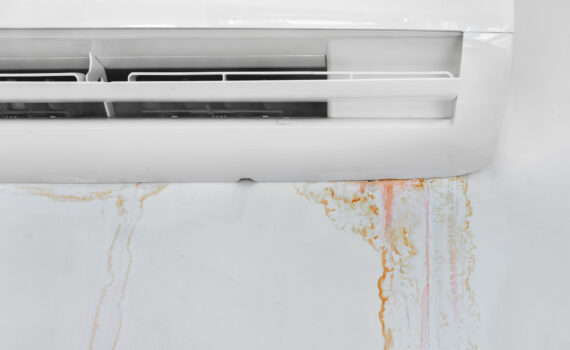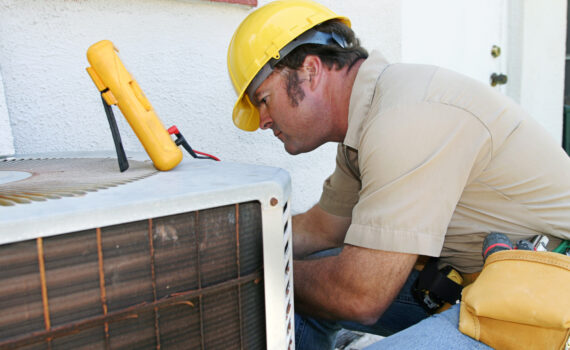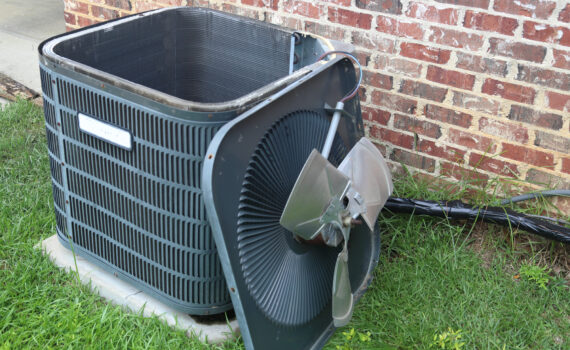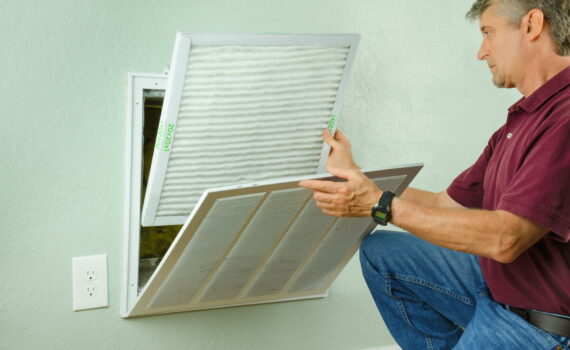Strange noises, an unusual smell, and rooms that never reach the set temperature. These are all signs that your HVAC system needs a tune-up.Neglecting these early signs could lead to more significant issues, such as system inefficiency, higher energy bills, or even complete breakdowns during extreme weather conditions.
An HVAC tune-up is a preventive measure that helps maintain your system’s performance and extend its lifespan. Regular maintenance ensures that your heating and cooling system is running smoothly, providing you with comfort year-round.If you’ve never scheduled one before, you might be wondering what an HVAC tune-up means and what to expect. This guide walks you through what you need to know and why you need them.
What to Expect From an HVAC Tune-Up
You rely on your heating and cooling system to feel more comfortable at home or in your commercial building year-round, but it does more than just regulate temperature. It also filters the air, improving indoor air quality by removing dust and allergens.However, neglecting regular maintenance can cause your system to break down and lose efficiency. This can lead to higher energy bills, reduced air quality, increased wear on components, and even safety risks like carbon monoxide poisoning. To avoid these issues, it’s wise to schedule an HVAC inspection and tune-up before the heating or cooling season begins. During the tune-up, technicians will inspect for wear and tear, make necessary repairs, and ensure your system operates efficiently and safely, helping you avoid costly breakdowns and ensuring a longer system lifespan. Regular maintenance also helps you comply with manufacturer warranty requirements, which often mandate annual inspections.
An HVAC tune-up generally consists of the following:
- Filter inspection
- Cleaning burners
- Cleaning AC components
- Checking the blower belt and the power motor
- Checking carbon monoxide levels
- Adjusting refrigerant levels
- Checking for wear
- Lubricating parts
- Checking pressure and temperature
- Testing thermostat and calibrating
- Testing the emergency shut off
- Inspecting the ductwork
- Looking at the safety controls
- Cleaning the drain line and trap
- Looking for leaks
- Tightening loose electrical connections
- Inspecting the heat exchanger
- Checking electrical wiring for ratings and connections
A professional technician will come to inspect and clean your HVAC system, ensuring that everything is working as it should. This provides several benefits, such as peace of mind knowing you’ll catch issues early. This thorough process not only identifies potential issues before they become costly repairs but also optimizes the system’s performance for maximum efficiency. Regular tune-ups can lead to lower energy bills and improved indoor air quality, providing a healthier environment for your home or business. This provides several benefits, such as peace of mind knowing you’ll catch issues early. Plus, many warranties require an annual maintenance plan of some sort to remain active.
When to Get an HVAC Tune-Up
So, what’s the best HVAC tune-up timeline? We recommend scheduling HVAC maintenance at least once a year. That includes an inspection of both your central AC system and the furnace.
For heat pump systems, it’s a good idea to have them maintained every six months.
Of course, if you suspect something is wrong with your heating or cooling system, be sure to schedule repairs as soon as possible. Strange sounds or smells are signs something might be broken.
Regular maintenance can spot issues early on that will reduce the chances of your system wearing down prematurely.
Our checklist provides a general idea of what to expect, but you can always ask the HVAC company to learn more. It’s also a good idea to ask about how you can care for your HVAC system and what tasks a homeowner can do to keep it running smoothly. For instance, removing debris or cleaning around the AC unit.
Signs You Need an HVAC Tune-Up ASAP
Even if you’ve already had an annual tune-up, there are times when your system might require additional attention. Be on the lookout for these warning signs that indicate your HVAC system needs maintenance right away:
- Unusual Noises: Clanging, banging, or screeching sounds coming from your HVAC system can be signs of loose or damaged parts. Ignoring these sounds can lead to more severe issues.
- Strange Odors: A musty smell could indicate mold or mildew growing in the system, while a burning smell might signal electrical issues or overheating components.
- Poor Airflow: If certain rooms in your home aren’t getting the proper airflow, or if the system is struggling to cool or heat the space effectively, it’s time for a tune-up.
- Increased Energy Bills: A sudden spike in your energy bills could mean your HVAC system is working inefficiently due to a lack of maintenance or an underlying issue.
- Frequent Cycling: If your system is turning on and off more frequently than usual, it may be having trouble maintaining the set temperature, which is often a sign of an issue with the thermostat or other components.
If you notice any of these symptoms, don’t wait until your scheduled maintenance—call a professional technician right away to assess and repair the system before it fails.
The Importance of HVAC Tune-Ups for Energy Efficiency and Longevity
Regular HVAC tune-ups are essential for the long-term performance and efficiency of your heating and cooling system. An optimized HVAC system doesn’t just ensure comfort but also plays a crucial role in reducing your energy consumption. When your system runs efficiently, it uses less energy to achieve the same temperature control, leading to noticeable savings on your energy bills. Moreover, a well-maintained system has a significantly longer lifespan, meaning you can delay the need for expensive replacements. Catching minor issues early through tune-ups helps prevent costly breakdowns during extreme weather conditions, ensuring your home or business stays comfortable year-round.
If you prioritize energy efficiency and want to save on repair costs in the long run, make HVAC tune-ups a regular part of your maintenance routine. Not only will this reduce your carbon footprint, but it will also provide a safer environment by ensuring that all components function properly and there are no risks of leaks or other hazards.
Improving HVAC System Efficiency and Performance
Regular HVAC tune-ups not only help with system longevity but also significantly enhance the overall efficiency and performance of your unit. Over time, dirt, dust, and debris can accumulate within the system, clogging filters and blocking airflow. During a tune-up, technicians will clean these components to ensure optimal airflow, which allows your HVAC system to work at peak efficiency. Improved airflow leads to better temperature control and less strain on the system, which can lower energy consumption and reduce utility bills. Additionally, well-maintained systems are better at maintaining consistent indoor temperatures, ensuring your home stays comfortable no matter the season. By optimizing performance, you’ll enjoy better comfort, cleaner air, and reduced energy costs year-round.
Stay Comfortable All Year
An HVAC tune-up consists of a complete inspection of your furnace and central AC system. If a technician sees anything amiss, they’ll adjust it and bring it to your attention.
Regular tune-ups don’t just help you avoid unexpected breakdowns, but they also ensure that your system runs at optimal efficiency throughout the year. Whether it’s during the sweltering summer heat or the chilly winter months, you can rely on your HVAC system to provide consistent comfort. Additionally, routine maintenance can help extend the life of your system and reduce the likelihood of costly repairs down the line.
Natal Air Conditioning has all of your tune-up, repair, and installation services covered! Send us a message to learn more about our services or to schedule an appointment.










